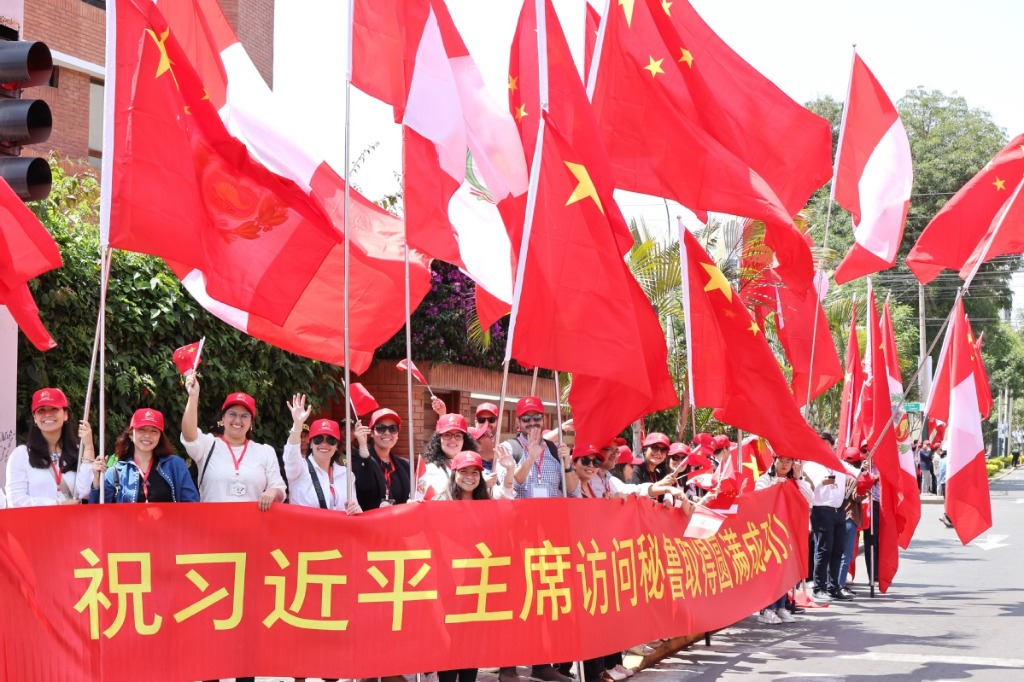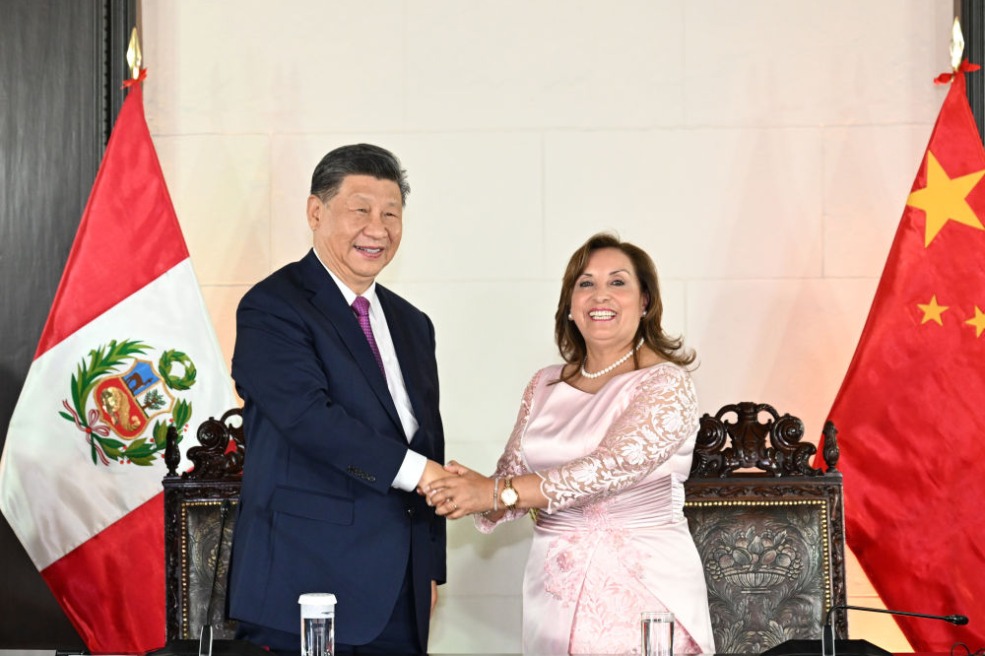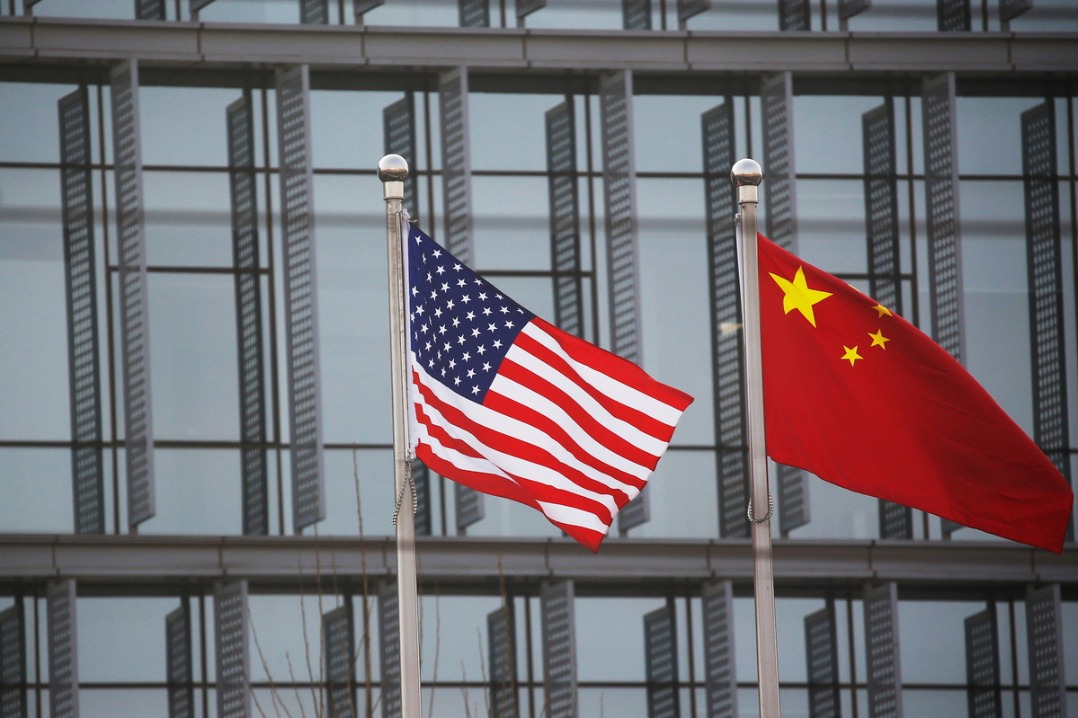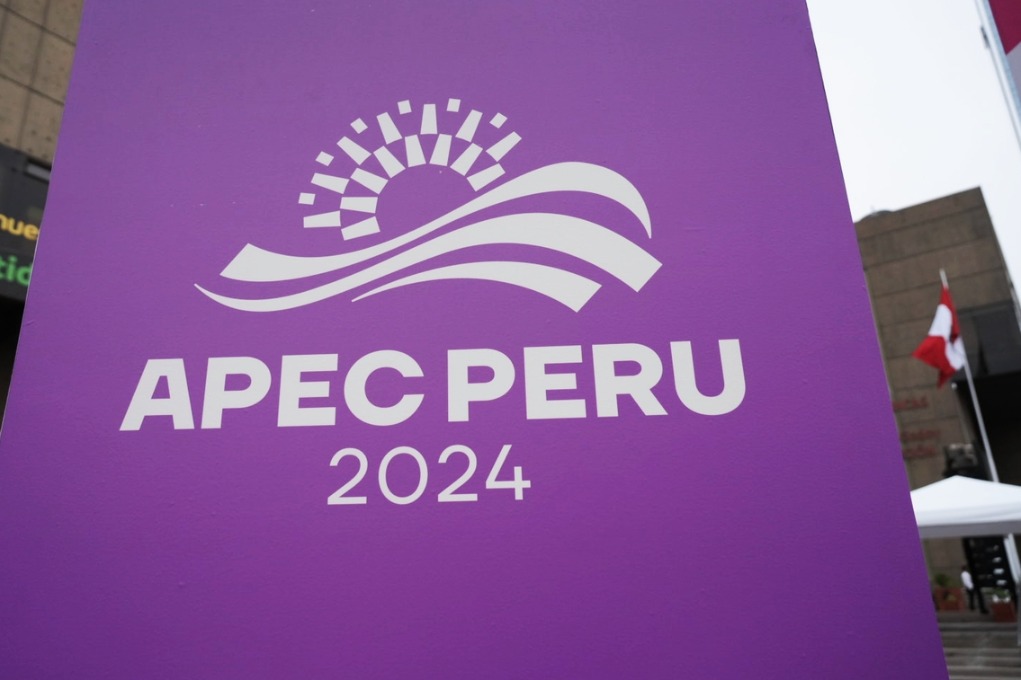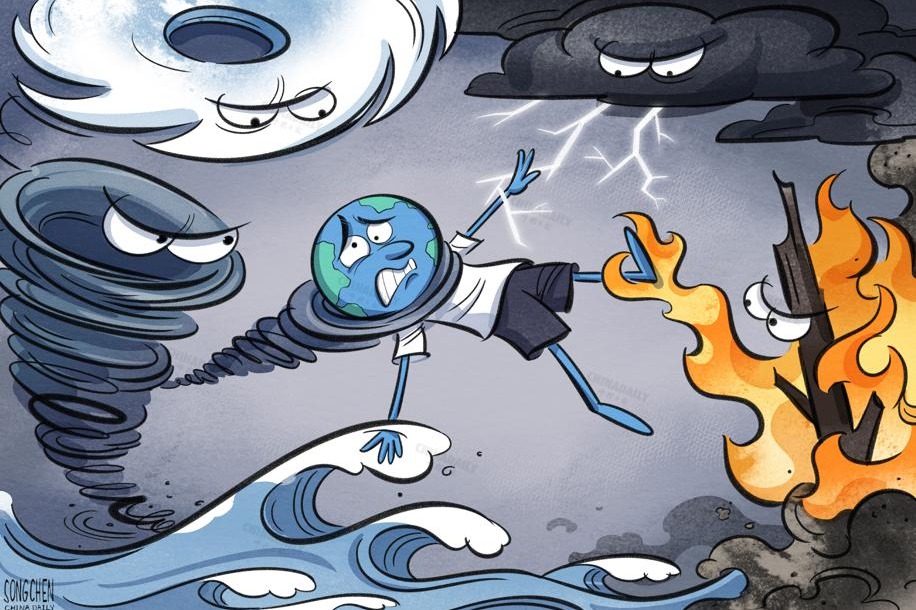America's obsession to outcompete China endangers the world


Taking outcompeting China as a priority in its China policy and foreign policy, the US has adopted a multitude of highly contentious measures in diplomacy, trade, technology and security in recent years. This affects all countries in the world, the Global South included, with many having already suffered greatly in numerous ways.
Undermining international order and rules
The endeavor to outcompete China is, in essence, a zero-sum or even negative-sum mentality. The US goes out of its way to contain China, even if it means sacrificing the interests of a wider range of countries. It suppresses all international mechanisms that China participates in or supports, even though they benefit the Global South and the international community.
According to media reports, prior to the BRICS Summit in Kazan, the US put pressure on countries intending to attend the Summit, and tried to deter those aspirations from joining the group, in an attempt to disrupt the BRICS. The US only cares about outcompeting China and maintaining its status as the global leader. No wonder it does not feel guilty about trampling upon the international rules it once helped set up, or hear the calls from the Global South for a just and reasonable international order?
Impeding free trade and economic cooperation
The US, in its endeavor to contain China and blunt China’s edge in global trade, has undermined the international free trade system regardless of the interests of other countries. It has repeatedly used its veto power to block the appointment of new judges to the WTO Appellate Body, paralyzing the dispute settlement mechanism since 2019.
WTO Director-General Ngozi Okonjo-Iweala said there are signs of fragmentation in global trade, adding that if the world were to break into two trading blocs, there would be a 5 percent loss in real global GDP in the long term. That’s like losing the economy of Japan.
The US has also encouraged its allies to “de-risk” from China by erecting trade and investment barriers with no regard for market laws, which essentially shifts risks to other countries. According to the IMF, the US’ policy of “friend-shoring” and “near-shoring” hurts developing countries the most, and some could see losses of up to 12 percent of GDP. Such attempts to economically outcompete China may lead to a more divided and impoverished world.
Delaying technological progress
For the US, suppressing China’s technological development is a crucial means to outcompete China, which accounts for its “small yard, high fence” approach and its sanctions and blockade against Chinese high-tech companies. The New York Times has referred to US chip export controls against China as “an act of war”. In fact, this is also a form of warfare against other countries, which may lead to further fragmentation in global AI governance, and may even result in two parallel markets and two sets of international rules. This makes it more difficult for Global South countries in a disadvantaged position to benefit from AI, thus further widening the global “AI divide”.
The US has also taken legislative measures to restrict the growth of China’s biotechnology sector, barring federal agencies from using the biotechnology of Chinese companies. Rachel King, CEO of the Biotechnology Innovation Organization, said the legislation would “do untold damage to the drug development supply chain both for treatments currently approved and on market as well as for development pipelines decades in the making.” The US’ obsession with “technological decoupling” actually harms the shared interests of humanity.
Exacerbating global security threats
Efforts to outcompete China are evolving into a “new Cold War”. To encircle China, the US has established the AUKUS together with the United Kingdom and Australia, and provided Australia with nuclear submarines, spreading weapon-grade nuclear materials to non-nuclear states and regions. This has plunged the entire South Pacific into the vortex of nuclear threats, causing deep concerns among countries and peoples in the region.
Fijian civil society organizations have criticized the US for turning the Pacific region into a “highway” for nuclear weapons. The Pacific Islands Forum has urged the US to comply with the Treaty on the Non-Proliferation of Nuclear Weapons (NPT), so as to keep the region nuclear free. However, the US continues to push for the expansion of AUKUS in disregard of the objection from these Global South countries. The US seeks to maintain its absolute security by outcompeting China, but this approach only makes the Global South less secure. There will be no winners in this new Cold War: wherever the US-led coalition against China expands, it brings more confrontation and instability there.
Hindering response to global challenges
The US’ obsession with outcompeting China undermines the coordinated efforts of the two major countries in addressing global issues. Accelerating green transition provides a fundamental solution to tackle climate change. However, the US and its allies have resorted to tariffs and sanctions to go after China’s green industry. According to the Asian Development Bank, due to conflicts of interest, some countries have taken unilateral measures, severely hindering global efforts for net-zero emissions.
When it comes to meeting other global challenges, the situation is equally frustrating. Ten years ago, when the Ebola virus broke out in Africa, China and the US promptly dispatched medical teams to the continent, and effectively curbed the spread of the disease along with other nations. Today, while Marburg virus and monkeypox are ravaging the African continent, the political atmosphere in the US no longer supports cooperation with China in fighting the viruses. Efforts to outcompete China are doomed to fail, and it will only end up jeopardizing the future of mankind.
The US’ competition with China is increasingly becoming a “race to the bottom” or even “competition without bottom”. No country in the world will emerge unscathed from it, with vulnerable Global South nations bearing the brunt. The Global South should raise its voice and take more actions to collectively oppose these erroneous practices. This is not only for the common interests of the Global South, but also for a peaceful and prosperous world for future generations.


















